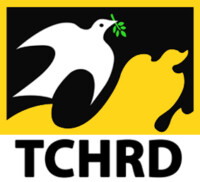Tsewang, a 63 year old man from Shol Lhasa, has failed in his appeal to the “TAR” People’s High Court after being sentenced by the Lhasa City’s Intermediate People’s Court to five years imprisonment for “stealing state secrets and communicating with western splittist forces” in its verdict issued on 26 March, 1996.
The verdict of the Intermediate Court stated “at the end of July 1992 defendant Tsewang has visited Mysore region in India. After returning to Tibet the defendant Tsewang has collected information on the political and economic situation in Tibet, lists of people who participated in demonstrations and secret documents and has sent them twice to a secret enemy organisation based abroad without mentioning his name. The defendant confessed to receiving 40,000 Indian rupees from the organisation on whose request he has undertaken these activities.”
The verdict also stated “the defendant, with intention to destroy the proletarian and socialist system, had collected information as assigned by a secret organisation based abroad and has sent this information to them. He has therefore violated the state security law and is hence convicted of espionage crime. As per article 97 section 1 and article 52 of the People’s Republic of China’s Criminal Law, the defendant has committed espionage crime and is hence sentenced to 5 years imprisonment and deprived of his political rights for 3 years.”
Tsewang had been arrested on June 16, 1995 at 6:45 pm from his home for “political reasons”. After charging him with spying, he was interrogated by the TAR National Security Bureau on August 10, 1995, and was thereafter detained in “TAR”‘s Detention Centre (Seitru).
Tsewang, born in 1935, worked as an accountant at the ‘Shol Thongye Ngamle’ a co-operative production unit, and lived in Shol’s main Gate No. 1/20 before his arrest. He visited India twice in 1985 and in 1992.
He was first arrested in 1959 after the abortive uprising of Tibetan people against China. At that time he was a soldier in the Tibetan army. In 1985, after returning from a trip to India, he was again arrested. He was arrested for the third time in June 1995 and accused of being a “spy” for the Tibetan Government-in-Exile.
The High Court in its sentence paper issued on 30th May 1996 stated “The High Court regards the previous investigating court’s judgement on the defendant Tsewang who had committed espionage crime as reliable, appropriate and just and hence the defendant’s appeal has been rejected.”
Appeal cases are notoriously problematic under China’s appellate system, despite minor modifications introduced this year. Defendants are reluctant to appeal for fear an appeal decision may be even harsher than the original verdict and there is to date no known case of a Tibetan prisoner ever successfully appealing his or her case.
